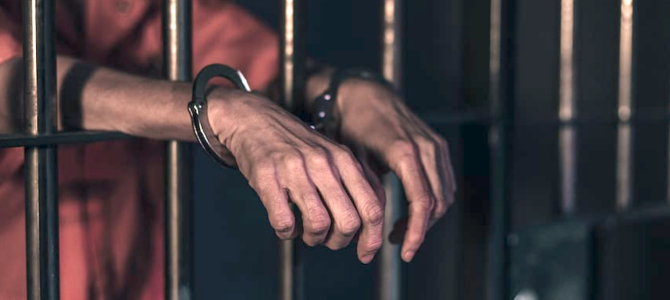Most states are slowly but surely reopening their economies by lifting restrictions on retail and restaurant shutdowns. One thing that hasn’t been able to stop during the coronavirus pandemic is the criminal justice system, which has tried embracing technology for virtual court proceedings. Florida has even decided to try remote jury trials for civil cases. But not every state has figured this out — and the safe reopening of the courts is pertinent. At minimum, courts should be embracing technology to ensure justice isn’t temporarily delayed. In the meantime, people’s safety and constitutional rights are at stake.
The pandemic has undermined criminally charged people’s Sixth Amendment right to a speedy trial, which unleashes a myriad of other problems outlined below. Many courts have done their best to move to virtual formats, but it’s far from a perfect solution. One Missoula judge had to vacate 40 trials, with predictions that none will go forward until at least July, and immigration courts have more than 1 million backlogged cases. Meanwhile, defendants suffer and await their fate, sometimes behind bars if they can’t afford to pay bail.
The American criminal justice system no longer looks merely to punish people for their crimes. In the recent reform era, with the rehabilitation mantra rather than retribution 100 percent of the time, many courts and prosecutors try their best to get defendants the help they need rather than just throwing them in a cage.
If a person is caught on a first offense for possession of drugs or petty theft, for example, a good prosecutor would likely recommend a rehabilitation program and probation rather than jail time. The idea is to use the sentencing period as a time to help them reform to lower the chances of recidivism down the road, and in turn save taxpayer dollars. In the words of conservative-leaning Utah County District Attorney David Leavitt, this new way of addressing defendants with compassion rather than traditional harsh penalties is “redemptive justice.”
However, the COVID-19 court shutdowns and state regulations are throwing a major wrench in this plan.
Consider a person pulled over for drunk driving. It turns out, they’re a struggling alcoholic who doesn’t have motivation or family members to ensure they get the help they need to start the recovery process. The police intervened when they caught the person driving under the influence, but now it’s up to the courts to lead them to a rehabilitation program and monitor them to ensure they stay off the road and on a path to sobriety. With delayed sentencing, this person might not get this help for months.
While the criminal course of action isn’t necessarily ideal because of the repercussions that come with having a record, it could save their life and the lives of others on the road later.
For those already sentenced and on their way out of the prison system, the regular schedule of therapeutic meetings, such as Alcoholics Anonymous or anger-management classes, provides structure and regularity that mimics prison life and helps with societal reentry. In-person check-ups with probation or parole officers maintain accountability. But with courts closed all across the country, and social distancing disrupting in-person visits and group therapy, those involved with the criminal justice system are especially at risk of having their lives fall apart due to the pandemic.
But what if a person gets stuck in jail on bail they can’t afford? Pretrial detainees who have been charged but not yet convicted of a crime make up roughly 70 percent of America’s jail population. For some, this could quite literally be a death sentence.
The pandemic has quickly crept into the nation’s incarceration facilities, with at least 25,239 people in prison having tested COVID-19 positive. Jails are more difficult to track because of the constant in and out inherent with pretrial detainees. We do know, however, that both jails and prisons can’t reasonably distance people socially, yet many inmates still don’t have access to basic sanitary items such as masks and soap.
Keeping people out of prisons and jails is essential for the health and wellbeing of inmates and surrounding communities. In Texas, for example, seven prison employees have already died because of COVID-19.
When making release decisions for people who may not need to be detained prior to their trial, judges must be prudent. The New York Post reported at least 50 of the 1,500 inmates released from jail due to COVID-19 fears have landed themselves back behind bars after committing crimes.
For the sake of a huge swath of society — those awaiting trials or currently incarcerated, communities surrounding jails and prisons, and those reentering society — courts must either quickly adapt to using technology for proceedings, or begin opening up with health and safety precautions. If they don’t, the individual and societal impacts will continue to intensify and will soon snowball out of control.









